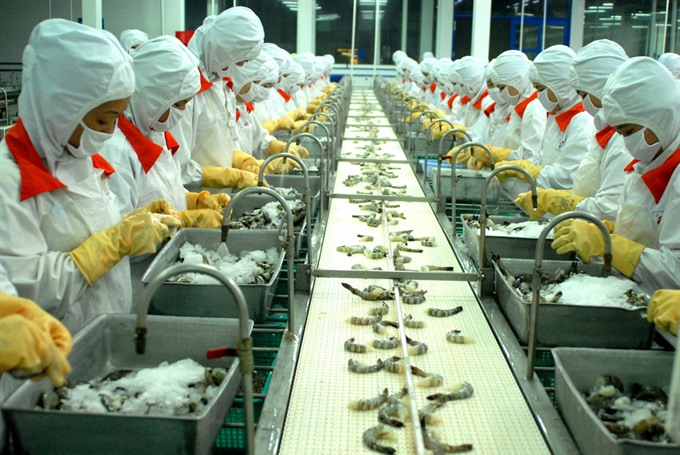Viet Nam registered a growth in the exports of all key farming products as well as forestry and seafood products during the first half of this year.

Viet Nam registered a growth in the exports of all key farming products as well as forestry and seafood products during the first half of this year.
This was reported by the Ministry of Agriculture and Rural Development.
Some key agro products continued to witness strong growth in exports that had recovered from 2017, such as vegetables, fruits and seafood, the ministry’s Agro Processing and Market Development Authority said at the ministry’s conference on production and business in the first half of this year and those activities in the second half.
Meanwhile, some other products witnessed a rise in exports, including wooden products and tea, which focused on high quality and global reputation, the authority said.
According to the ministry, the national export value of agriculture, forestry and seafood products in the first six months of this year had a year-on-year increase of 12 per cent to reach US$19.4 billion.
Of this, the export value rose by 9.7 per cent for agricultural products to reach $10.3 billion, by 10.5 per cent for seafood products to $3.94 billion and by 12.7 per cent for main forestry products to $4.33 billion compared to the same period last year.
Other products that recorded high export growth in the first six months of the year included rice (up by 42 per cent to $1.81 billion), vegetables and fruits (up by 20 per cent to $2 billion), cashew nut (up by 16.4 per cent to $1.71 billion), wood and wooden products (up by 12.1 per cent to $4.1 billion) and seafood (up by 10.5 per cent to $4.33 billion).
According to the ministry, the value of rice exports of major countries decreased in June. However, the export price of Vietnamese five-per-cent broken rice reached $450 per tonne, higher than the price of the same product in India and Thailand. The export prices of Indian and Thai rice were $410 and $435 per tonne, respectively.
In the global market, the price of Thai rice fell to the lowest level this year due to a low demand in the global market and higher supply in the domestic market. The price of Indian rice fell because of weak purchasing power in Africa and Bangladesh, according to the ministry.
Viet Nam’s rice exports in June was estimated at 604,000 tonnes, earning $317 million and bringing the exports to 3.56 million tonnes in volume and $1.81 billion in value. Rice exports in the first six months gained a year-on-year surge of 25 per cent in volume and 42 per cent in value.
Viet Nam recorded strong growth in exports of agro, forestry and seafood products to Indonesia, mainland China, Germany, Malaysia, Iraq, Hong Kong, the Philippines, Saudi Arabia, the United States and India.
Vegetable and fruit exports
The ministry said Viet Nam registered high export value of vegetable and fruit products to major markets in the first half of the year.
The country earned $2 billion from exporting fruits and vegetables, a year-on-year increase of 19.7 per cent, including $340 million in June with a growth of 25 per cent year-on-year.
During the period, China was the largest export market for Vietnamese fruit and vegetable products, with an export value of $1.2 billion, a year-on-year increase of 18.1 per cent. The second-largest export market was the United States, with an export value of $50.9 million, a year-on-year surge of 14.6 per cent.
It was followed by Japan with $46.7 million, up by 8 per cent; South Korea with $46.5 million, up by 15.4 per cent and Thailand with $26.1 million, up by 26.3 per cent.
The authority said in future, Vietnamese vegetables and fruits would be expected to compete with the same products in the traditional markets. To boost exports, exporters need to cooperate in production based on the demand of volume, standard and food safety in import markets.
They should especially focus on the development and application of post-harvest fruit preservation technology and processes as well as produce value-added products to boost exports to important markets such as the United States, Australia and Japan. - VNS





